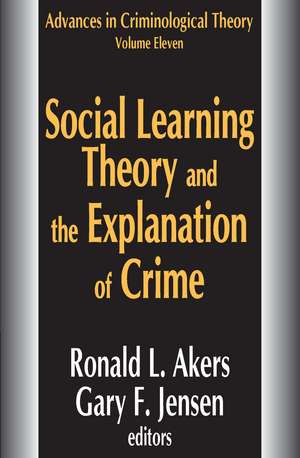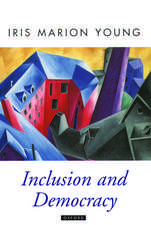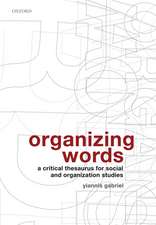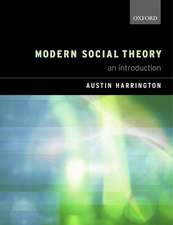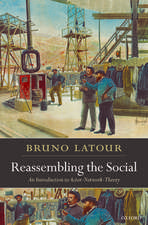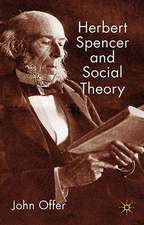Social Learning Theory and the Explanation of Crime: Advances in Criminological Theory
Editat de Ronald L. Akers, Gary F. Jensenen Limba Engleză Paperback – 15 mar 2007
This comprehensive volume includes the latest work, tests, and theoretical advances in social learning theory and will be particularly helpful to criminologists, sociologists, and psychologists. It may also be of interest to those concerned with current issues relating to delinquency, drug use/abuse, and drinking/alcohol abuse.
| Toate formatele și edițiile | Preț | Express |
|---|---|---|
| Paperback (1) | 426.46 lei 6-8 săpt. | |
| Taylor & Francis – 15 mar 2007 | 426.46 lei 6-8 săpt. | |
| Hardback (1) | 1054.71 lei 6-8 săpt. | |
| Taylor & Francis – 28 sep 2017 | 1054.71 lei 6-8 săpt. |
Din seria Advances in Criminological Theory
-
 Preț: 327.48 lei
Preț: 327.48 lei -
 Preț: 337.21 lei
Preț: 337.21 lei -
 Preț: 432.29 lei
Preț: 432.29 lei -
 Preț: 389.38 lei
Preț: 389.38 lei -
 Preț: 416.82 lei
Preț: 416.82 lei -
 Preț: 395.04 lei
Preț: 395.04 lei -
 Preț: 489.26 lei
Preț: 489.26 lei - 14%
 Preț: 299.52 lei
Preț: 299.52 lei - 13%
 Preț: 297.57 lei
Preț: 297.57 lei -
 Preț: 375.54 lei
Preț: 375.54 lei -
 Preț: 391.22 lei
Preț: 391.22 lei - 13%
 Preț: 351.24 lei
Preț: 351.24 lei -
 Preț: 349.15 lei
Preț: 349.15 lei -
 Preț: 416.22 lei
Preț: 416.22 lei -
 Preț: 449.63 lei
Preț: 449.63 lei -
 Preț: 393.52 lei
Preț: 393.52 lei -
 Preț: 444.80 lei
Preț: 444.80 lei - 18%
 Preț: 999.51 lei
Preț: 999.51 lei - 16%
 Preț: 260.54 lei
Preț: 260.54 lei - 16%
 Preț: 262.73 lei
Preț: 262.73 lei -
 Preț: 342.70 lei
Preț: 342.70 lei - 14%
 Preț: 299.52 lei
Preț: 299.52 lei -
 Preț: 441.91 lei
Preț: 441.91 lei -
 Preț: 395.37 lei
Preț: 395.37 lei -
 Preț: 353.61 lei
Preț: 353.61 lei -
 Preț: 389.66 lei
Preț: 389.66 lei - 30%
 Preț: 769.59 lei
Preț: 769.59 lei
Preț: 426.46 lei
Nou
Puncte Express: 640
Preț estimativ în valută:
81.60€ • 85.43$ • 67.52£
81.60€ • 85.43$ • 67.52£
Carte tipărită la comandă
Livrare economică 05-19 aprilie
Preluare comenzi: 021 569.72.76
Specificații
ISBN-13: 9781412806497
ISBN-10: 1412806496
Pagini: 386
Ilustrații: 1
Dimensiuni: 152 x 229 x 25 mm
Greutate: 0.54 kg
Ediția:1
Editura: Taylor & Francis
Colecția Routledge
Seria Advances in Criminological Theory
Locul publicării:Oxford, United Kingdom
ISBN-10: 1412806496
Pagini: 386
Ilustrații: 1
Dimensiuni: 152 x 229 x 25 mm
Greutate: 0.54 kg
Ediția:1
Editura: Taylor & Francis
Colecția Routledge
Seria Advances in Criminological Theory
Locul publicării:Oxford, United Kingdom
Notă biografică
Ronald L. Akers, Gary F. Jensen
Cuprins
Editors’ Introduction, 1. “Taking Social Learning Global”: Micro-Macro Transitions in Criminological Theory, 2. Substance Use by Korean Adolescents: A Cross-Cultural Test of Social Learning, Social Bonding, and Self-Control Theories, 3. Explaining Delinquency in Taiwan: A Test of Social Learning Theory, 4. “Who’s It Gonna Be—You or Me?” The Potential of Social Learning for Integrated Homicide-Suicide Theory, 5. Social Learning Theory and Courtship Violence: An Empirical Test, 6. Delinquency and Depression: A Gendered Role- Taking and Social Learning Perspective, 7. Gender Variation in Delinquency: Self-Images, Beliefs, and Peers as Mediating Mechanisms, 8. Social Structure-Social Learning (SSSL) and Binge Drinking: A Specific Test of an Integrated General Theory, 9. Occupational Structure, Social Learning, and Adolescent Violence, 10. Confessions of a Dying Thief: A Tutorial on Differential Association, 11. Exploring the Relationship between Social and Non-Social Reinforcement in the Context of Social Learning Theory, 12. Theory-Mapping in Social Research: An Application to Social Learning Theory, 13. Development of Antisocial Behavior and Crime across the Life-Span from a Social Interactional Perspective: The Coercion Model, 14. What Correctional Treatment Can Tell Us about Criminological Theory: Implications for Social Learning Theory, Contributors, Subject Index, Name Index
Descriere
Social learning theory has been called the dominant theory of crime and delinquency in the United States, yet it is often misrepresented
